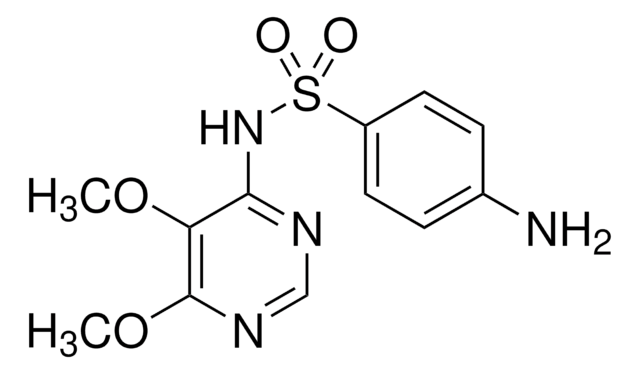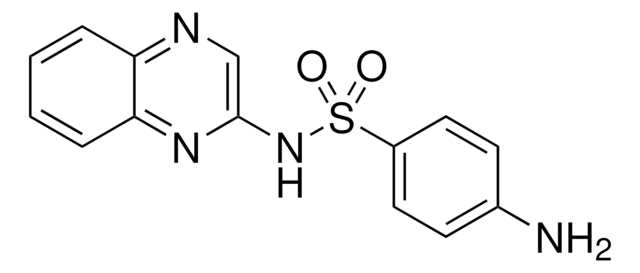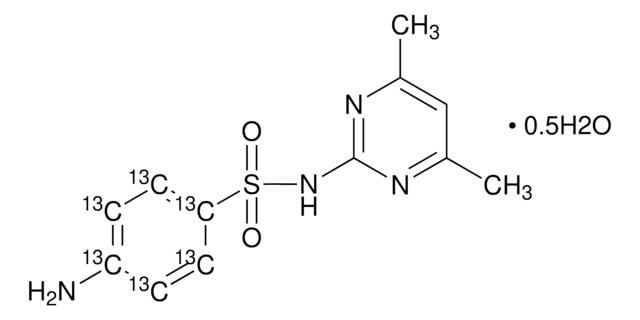46802
Sulfamethazine
VETRANAL®, analytical standard
Synonyme(s) :
4,6-Dimethylsulfadiazine, 4-Amino-N-(4,6-dimethyl-2-pyrimidinyl)benzenesulfonamide, Sulfadimethyldiazine, Sulfadimidine
About This Item
Produits recommandés
Qualité
analytical standard
Niveau de qualité
Agence
EPA 1694
Gamme de produits
VETRANAL®
Durée de conservation
limited shelf life, expiry date on the label
Technique(s)
HPLC: suitable
gas chromatography (GC): suitable
Spectre d'activité de l'antibiotique
Gram-negative bacteria
Gram-positive bacteria
Application(s)
clinical testing
Format
neat
Mode d’action
DNA synthesis | interferes
enzyme | inhibits
Chaîne SMILES
Cc1cc(C)nc(NS(=O)(=O)c2ccc(N)cc2)n1
InChI
1S/C12H14N4O2S/c1-8-7-9(2)15-12(14-8)16-19(17,18)11-5-3-10(13)4-6-11/h3-7H,13H2,1-2H3,(H,14,15,16)
Clé InChI
ASWVTGNCAZCNNR-UHFFFAOYSA-N
Vous recherchez des produits similaires ? Visite Guide de comparaison des produits
Description générale
Application
Actions biochimiques/physiologiques
Informations légales
Code de la classe de stockage
11 - Combustible Solids
Classe de danger pour l'eau (WGK)
WGK 2
Équipement de protection individuelle
Eyeshields, Gloves, type N95 (US)
Faites votre choix parmi les versions les plus récentes :
Déjà en possession de ce produit ?
Retrouvez la documentation relative aux produits que vous avez récemment achetés dans la Bibliothèque de documents.
Les clients ont également consulté
Notre équipe de scientifiques dispose d'une expérience dans tous les secteurs de la recherche, notamment en sciences de la vie, science des matériaux, synthèse chimique, chromatographie, analyse et dans de nombreux autres domaines..
Contacter notre Service technique













